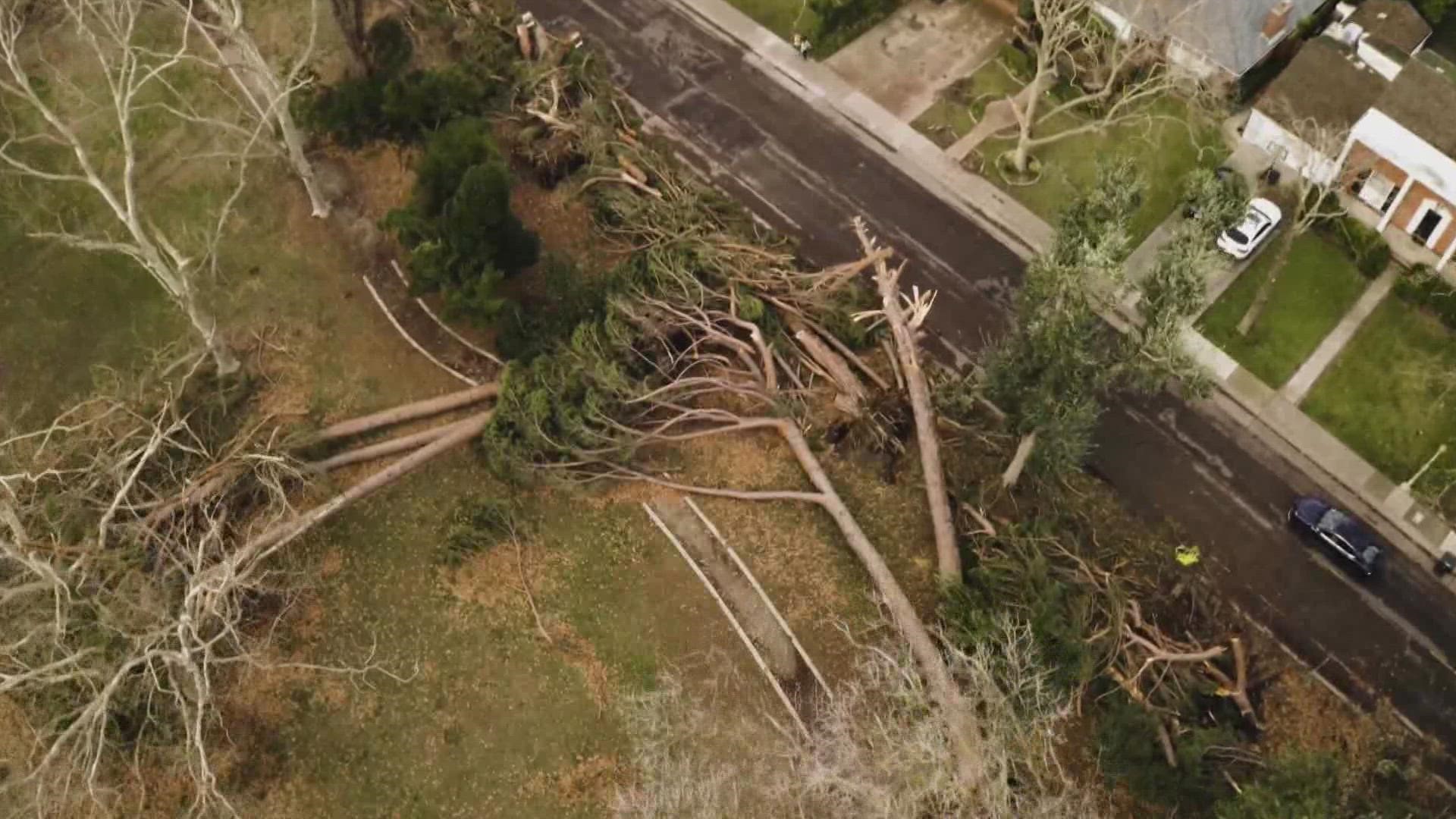SACRAMENTO, Calif. — Sacramento was once known as the “City of Trees” and has dozens of types of trees, but recently they have been blown over by strong winds and heavy rainfall, even causing some deaths.
“It's sad when those trees fall. It really is. It's emotional for communities. It's frustrating. It's expensive and it's emotional,” said Dan Lambe, CEO of the Arbor Day Foundation.
The non profit organization has been planting trees for more than 50 years and advocates for tree health in cities like Sacramento.
“In the wake of these disasters, the Arbor Day Foundation comes back to get trees in the front yards and backyards in important city landscapes because those trees and that tree canopy make cities more resilient, healthier and more beautiful,” said Lambe.
While falling and unkempt trees pose risk to property and life, Lambe says trees are the “first line of defense” against extreme weather events. He says trees soak up water — within reason — into their soil and roots, purify polluted air and block from severe weather.
“[Trees] help to slow the strong winds, buffer communities, buffer homes, buffer neighborhoods from the strong wind events. They also intercept heavy rain waters to reduce and slow runoff and flooding,” said Lambe.
In natural disasters, like what Northern California has recently experienced with the most recent storms, the Arbor Day Foundation works with the Federal Emergency Management Agency and Cal Fire to restore trees once it's safe.
“By and large, trees bring so much value to our cities and towns,” said Lambe, explaining the importance of replanting after destruction hits. “Healthy, strong trees help to prevent the damaging impact of some of these extreme weather events.”
He says severe weather has been increasing in recent years and trees continue to help us protect people, homes and entire cities from the worsening conditions.
“It seems like every year we’re seeing more ‘historic’ events. Historic wildfire, historic flooding. And trees are a part of that,” said Lambe. “[Trees are] no longer a nice to have, [they’re] a need to have.”



















